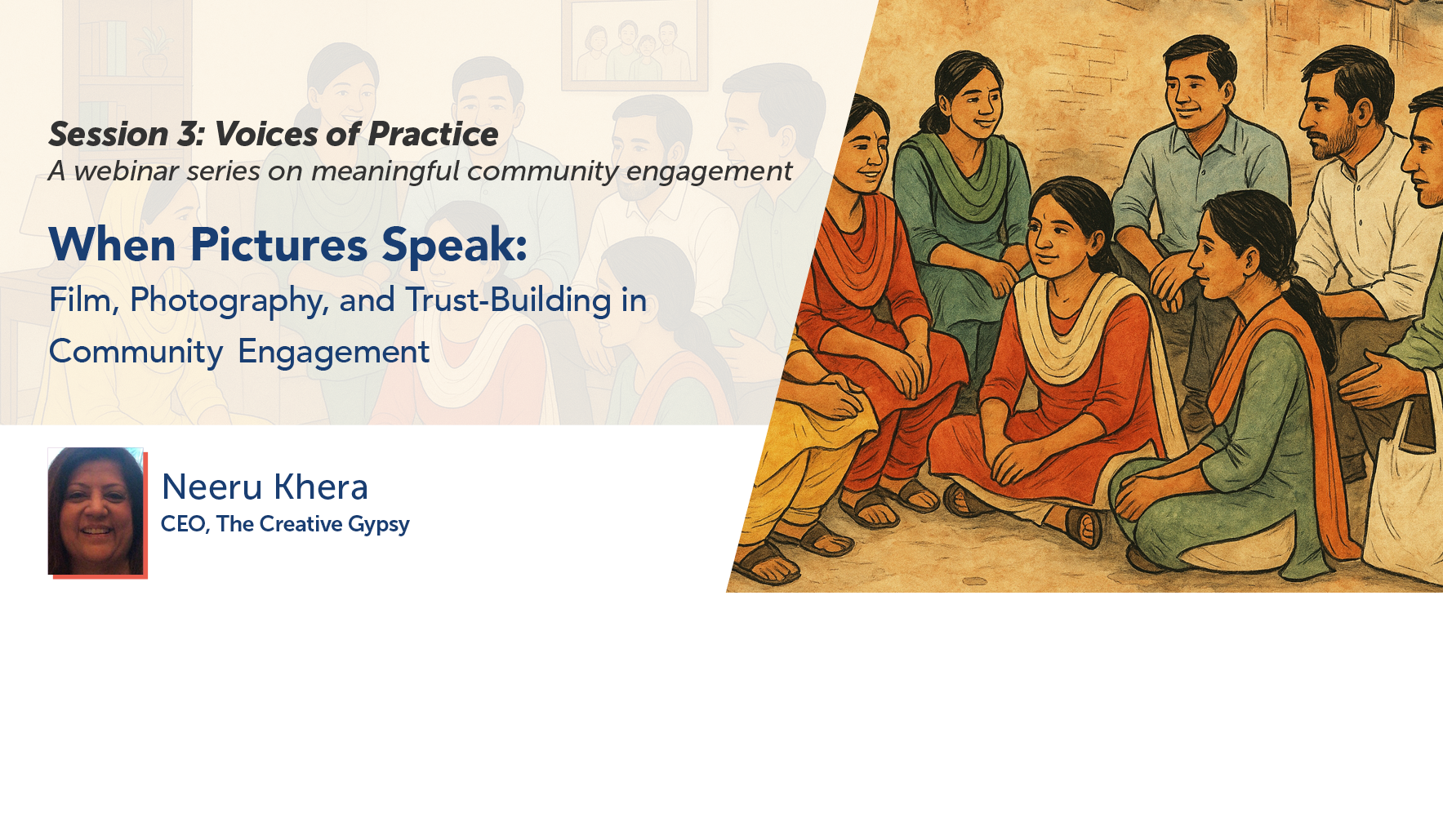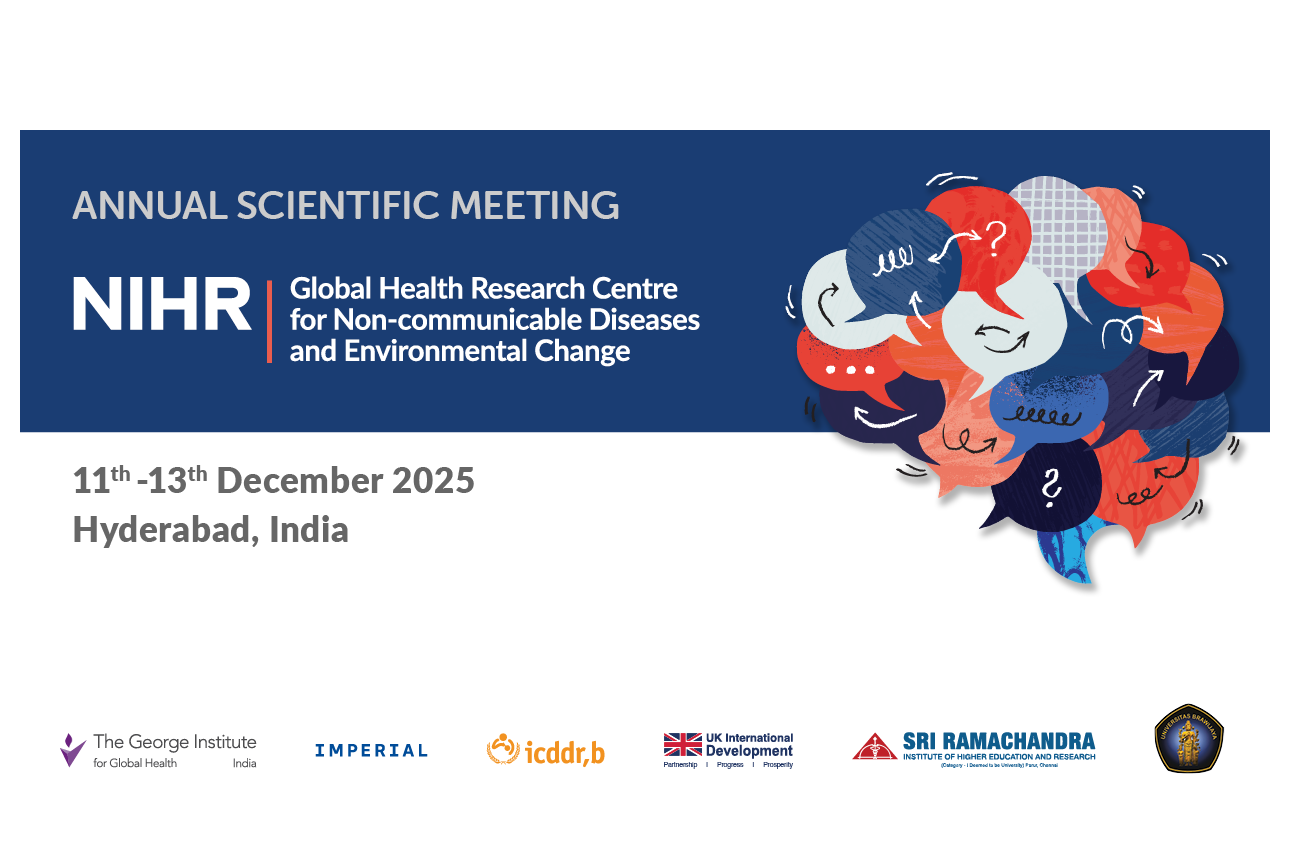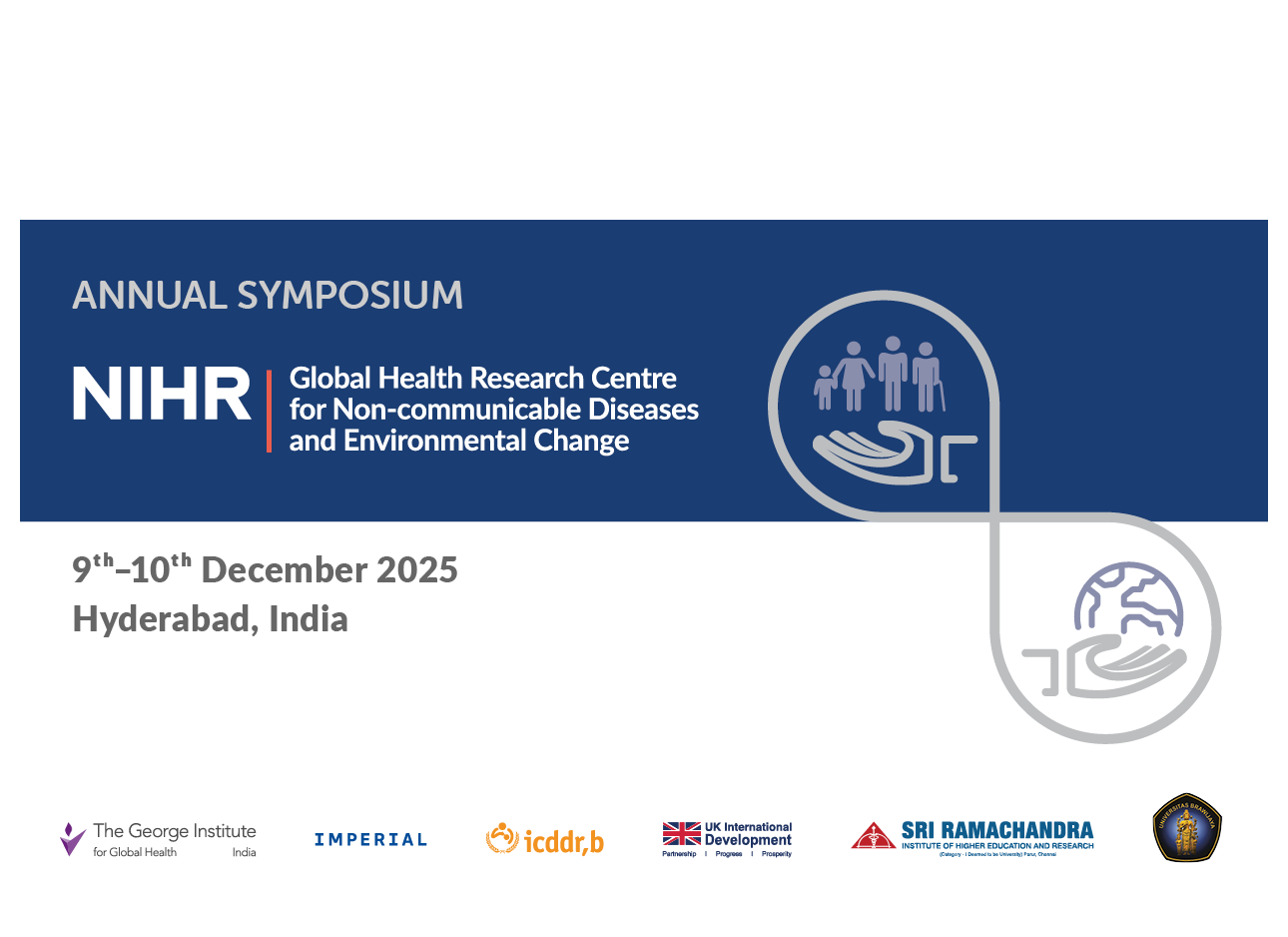Environmental change and its intersection with non-communicable diseases (NCDs) is central to our research at the NIHR Global Health Research Centre for Non-communicable Diseases and Environmental Change. Our approach is rooted in responsible community engagement and in the belief that communities are partners and active architects of co-created solutions in global health research.
Sustainability and reflection isn’t just a principle for us at the centre – it’s a practice. From minimising waste to embedding environmentally responsible choices into our programs and daily operations, we strive to model how health and environmental stewardship can go hand in hand. Our dedicated team in the Surguja district of Chhattisgarh is leading the way, implementing thoughtful and eco-friendly practices that reflects our values on the ground.
But, to err is human. And, to stumble in your first few steps is part of growth.
The Wake-Up Call: Walking the Talk on Climate Change
In the early stages of our community capacity-strengthening efforts, we encountered a discomforting and pivotal moment that highlighted the challenges we face. During one of our workshops in September 2024, conducted in the CLF1 (Cluster Level Federation) in the Batauli block, we were confronted by a striking sight that couldn’t be ignored.
While the session focused on the critical intersection of health and environmental change, a conspicuous heap of plastic waste – plates, glasses, containers, bags – lay abandoned. Our vendor had packed the food for participants of the workshop in plastic containers and served in single use plastic ware, without provision for garbage bags for the proper waste disposal, resulting in a careless disposal of waste in the open field outside.

Image curated by Chhavi Bhandari
Inside the training room, we engaged in the important discussion about the effects of climate change, yet outside, we were unknowingly contributing to the very problem we aimed to combat. It was a profound moment of contradiction that exposed the gap between our words and our actions. The writing was on the wall, and it was wholly unacceptable. Our anxiety deepened as we contemplated the fate of the plastic waste—would it be recycled responsibly or incinerated in the open air, releasing toxic fumes into the environment?! Less than 10% of the plastic produced worldwide is ever recycled2. The overwhelming majority of plastic waste ends up in landfills or is incinerated, both of which pose significant health risks to communities3. The pressing issue of plastic waste management is under active investigation by our partners in Indonesia4, revealing the urgent need for us to align our practices with our principles.
This experience was more than a misstep; it was a wake-up call. If we are to champion climate action, we must ensure to embody it in every detail of how we plan our events. Real change begins with accountability. It’s not just about what we say, it’s about what we do, especially when no one’s watching.
Creating a Shared Mandate: No Compromises on Sustainability
This moment catalysed an intense period of reflection and dialogue within our team. We were firm in our decision that we would not accept such contradictions. Our work centers on environmental change, and sustainability must be a non-negotiable principle, woven into every decision, every action, and every field site we interact with. In response, together with our field teams, we forged a shared understanding: we cannot expect communities to alter their behaviour if we do not actively demonstrate that change ourselves. From this point on, our commitment to “walking the talk” became more than a slogan – it became a standard. It would shine through in every training session, workshop, field visit, and community engagement initiative we undertake. It is and would remain our responsibility to lead by example and inspire genuine transformation.
Change in Action: Visible Impact on the Ground
Turning intentions into actions was no small feat. The transformation proved to be a formidable challenge, as we navigated through a multitude of ideas. We focused on identifying the solutions that were not only practical but also sustainable. We were determined to ensure that the proposed changes would not overburden our field team or use unsustainable resources. Once the most impactful solutions were identified, the field teams took decisive action towards implementing these changes. The results were striking.

We fully eliminated disposable plastic items from our events, and meals were now served on elegant, reusable ceramic or fiber plates, drastically reducing our dependency on single-use plastics. Furthermore, food was transported in steel containers instead of plastic packaging. These transformations may seem modest at first glance, but they carry a powerful message and spark ripple effects throughout the communities we serve.
Image curated by Maroof Khan
Four co-production workshops marked the successful debut of our newly implemented changes. We have since conducted seven comprehensive training sessions and workshops engaging more than two hundred participants. Our field teams have also incorporated these sustainable practices into the trainings and workshops for other projects in the region. With each step forward we are not only reinforcing our commitment to sustainability but also inspiring others to reflect on their own practices.
To effectively advance our sustainability objectives, we actively prioritized partnerships with local catering vendors for freshly cooked, balanced meals rather than packaged food. This approach not only supports the local economy by engaging small-scale vendors who provide utensils for community events but also deepens our connection with the communities we work in.

Image curated by Sangeeta Sharma
We also took deliberate and meaningful steps to minimize travel-related carbon emissions. By shifting workshops from the central field office to sub-district (block) and village council (panchayat) levels, we made participation more accessible for local stakeholders. Between June 2024 and now, we’ve held five block-level workshops with 162 participants, and eight village-level training sessions engaging 32 dedicated individuals.
The shift to blocks and panchayats for our workshops has significantly reduced the travel time for both community members and facilitators.
Modelling Sustainability through Practice
Sustainability doesn’t always require sweeping reforms. Sometimes, it’s the quiet, small, and deliberate choices – reducing single plastic use, minimising travel, supporting local businesses – can create a more lasting impact by contributing to a broader culture of responsibility.
As we engage communities in research, we are also shaping how research is conducted ethically, equitably, and sustainably. By embedding these practices into our daily operations, we ensure that our work not only studies change but actively embodies it. These are just the first steps in a longer journey. But they reflect our belief that community-centric, well-considered, and thoughtfully implemented actions can lead to meaningful and sustainable transformation.
As researchers, practitioners, and community partners, we have both the opportunity and the responsibility to integrate ethical and sustainable choices into every facet of our work. Let’s not wait for perfect solutions. Let’s lead with thoughtful ones and make sustainability a core standard rather than just a principle to examine, we can lead by example and create a lasting impact. Together, we can lead by example and create a lasting impact.
——————————————————
This blog was authored by Maroof Khan with valuable contributions from Sangeeta Sharma and Chhavi Bhandari.
Notable mention for field implementations by Sudhakar Bulla Reddy, Resham Lal Sonwane, Krishna Kumar Singh.
About the authors:
Maroof Khan- Maroof is the Community Engagement and Involvement (CEI) Manager for the NIHR Global Health Research Centre for Non-Communicable Diseases and Environmental Change. He oversees the planning and execution of CEI initiatives in India and supports CEI coordination in Bangladesh, India, and Indonesia. Maroof works closely with researchers, policy makers, and civil society organisations to bring community voices to the forefront in public health research.
Sangeeta Sharma- Sangeeta Sharma is a Research Officer at NIHR Global Health Research Centre for Non-Communicable Diseases and Environmental Change. With more than a decade’s experience in the public health field, Sangeeta has contributed to numerous projects. Implementing programs pertaining to mother and child health, infectious and non-communicable illnesses, community health worker capacity building, monitoring, and evaluation.
Chhavi Bhandari- Chhavi Bhandari leads Impact & Engagement for India and Multilaterals at The George Institute for Global Health, driving advocacy, policy dialogue, and community partnerships to amplify research impact. She serves as the Community Engagement and Involvement lead for the NIHR Global Health Research Centre on NCDs and Environmental Change, co-chairs the WHO NCD Lab on Women and Girls, and contributes to global health policy through WHO civil society groups. With an MBA and international experience across India, the UK, Australia, and beyond, she brings a globally informed yet locally grounded approach to public health.
This research was funded by the NIHR (Global Health Research Centre for Non-communicable Diseases and Environmental Change) using UK international development funding from the UK Government to support global health research. The views expressed in this publication are those of the author(s) and not necessarily those of the NIHR or the UK government.






